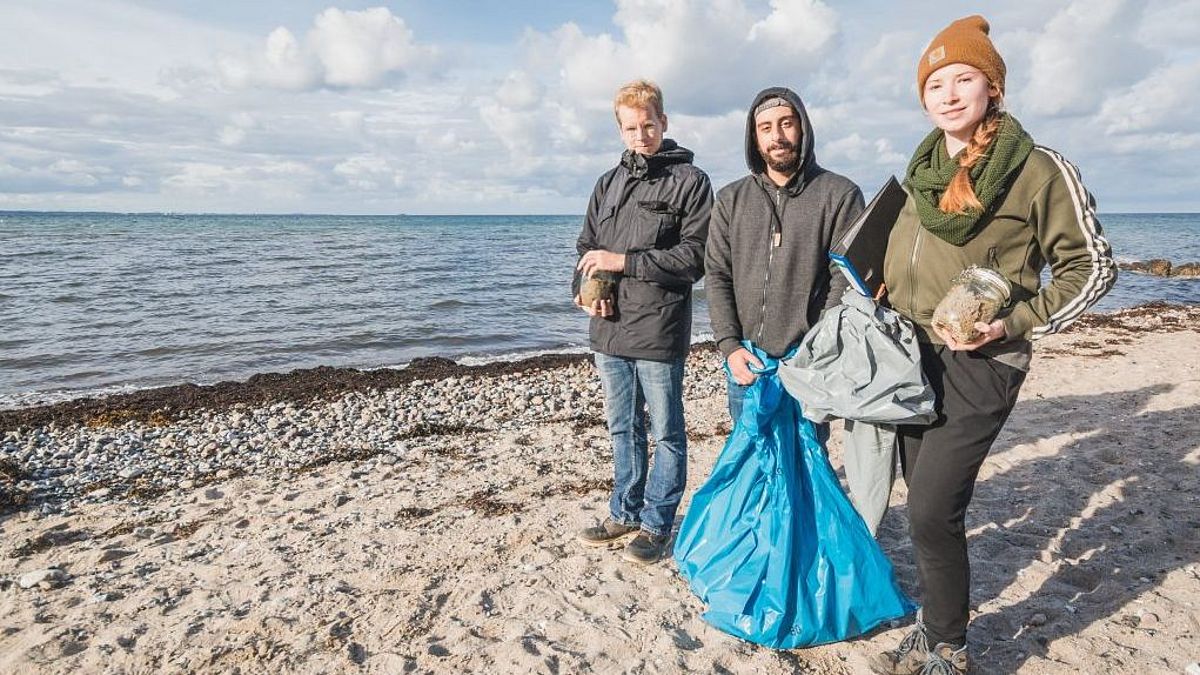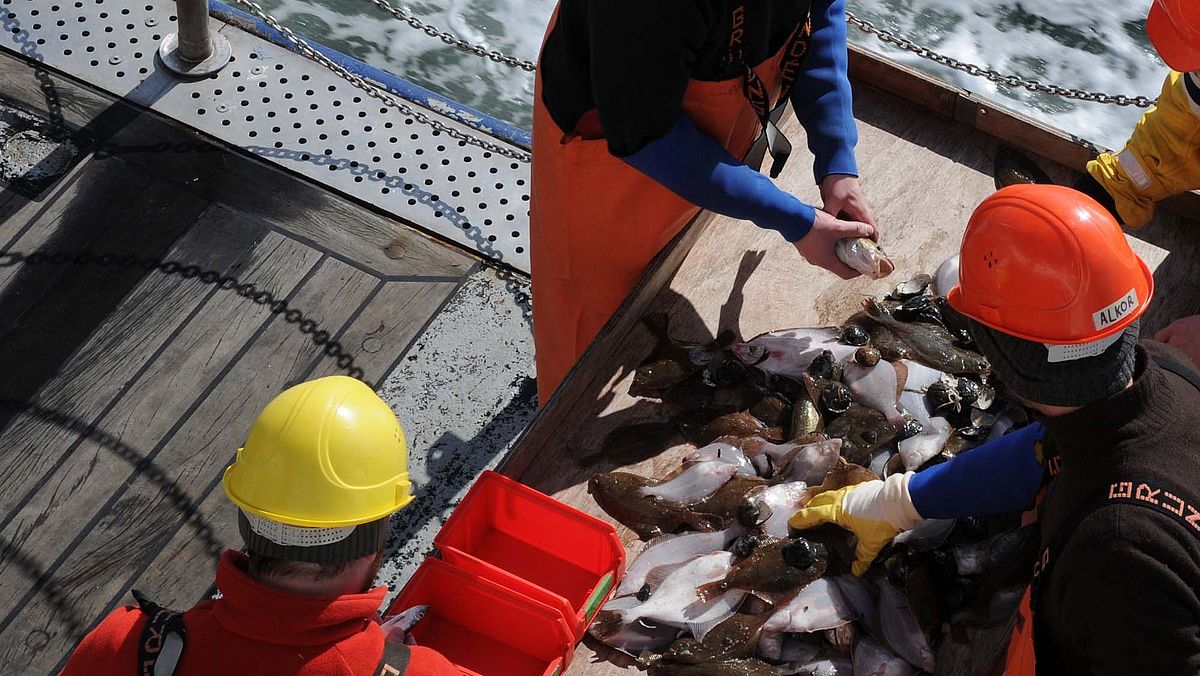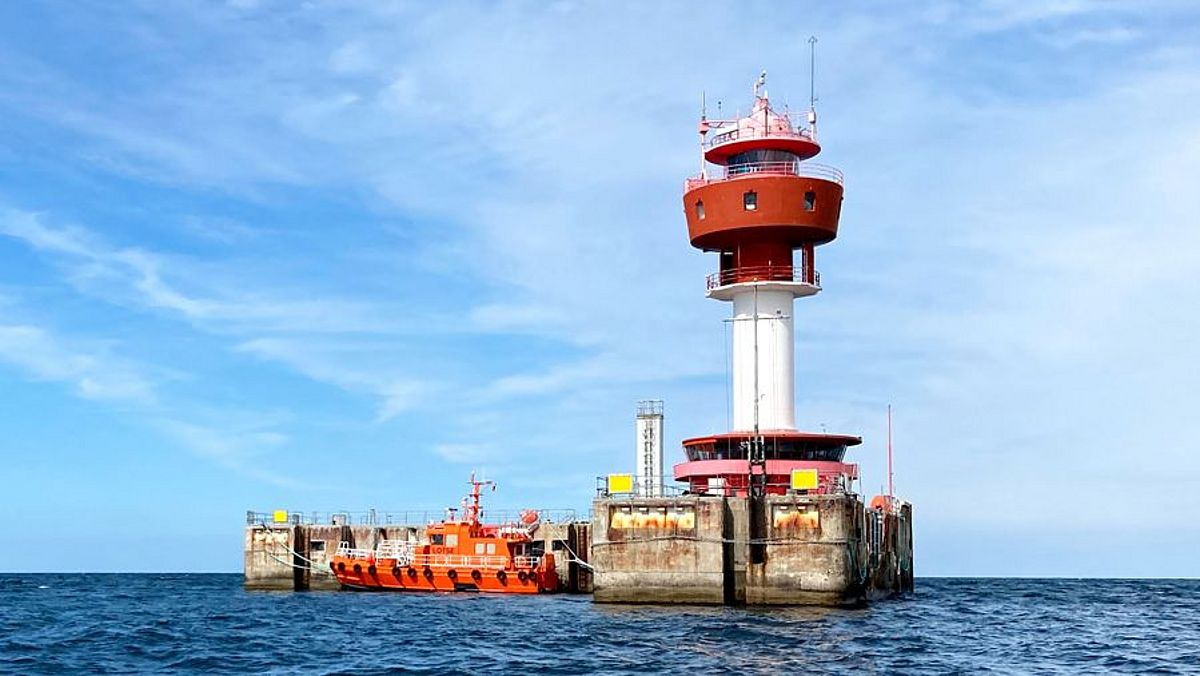The Baltic Sea – a Time Machine
In the Baltic, many changes can already be observed that are still to come in other marine regions. While the world ocean has warmed by about 0.5 degrees Celsius in the past 30 years, measurements in the Baltic Sea have already recorded a warming of about 1.5 degrees. There is a lack of oxygen at depth, and some zones are already considered oxygen-free. And the pH of the water regularly reaches values that are only expected for deeper basins by the next century as a consequence of ocean acidification. Eutrophication and pollution add to this. Researchers therefore call the brackish sea a “time machine”. At the same time, the Baltic Sea is one of the best researched ocean regions. The development of important environmental parameters, marine life and fish stocks have been recorded for decades.
For example, GEOMAR operates the Time Series Station Boknis Eck in the Eckernfoerde Bay and conducts fisheries biology expeditions in the western and eastern Baltic Sea several times a year. The researchers also study and sample the Kiel Fjord on a regular basis. In the course of this monitoring, they discovered comb jellyfish and other invasive species that are able to change the native ecosystem substantially.
Long-term experiments on the effects of climate change on communities in the Baltic Sea are conducted in the Kiel Benthocosms, experimental tanks on the Kiellinie in front of the aquarium. In initial test fields and at the laboratory, options for the conservation and renaturation of seagrass meadows are being investigated – which has a positive effect on biodiversity and the uptake of carbon dioxide in the sea.
For more than ten years, researchers at GEOMAR are also dedicated to the legacy of ammunition from the Second World War. More than 1.5 million tonnes lie at the bottom of the North Sea and the Baltic Sea – a danger for humans and nature. In addition to detecting and documenting the old munitions, new projects also develop approaches for a safe recovery and clearance.


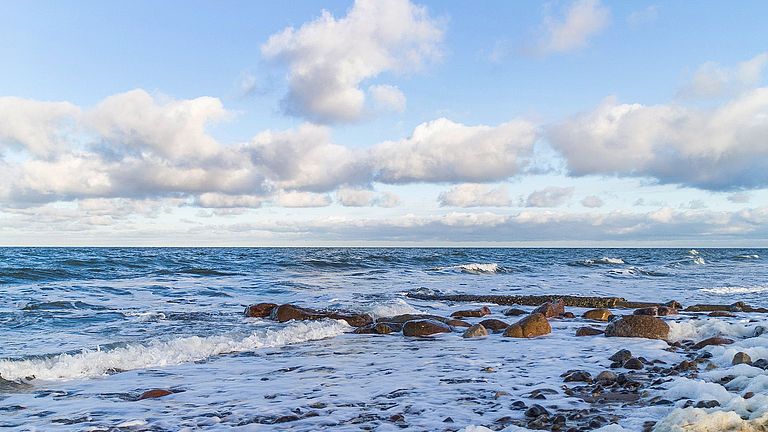
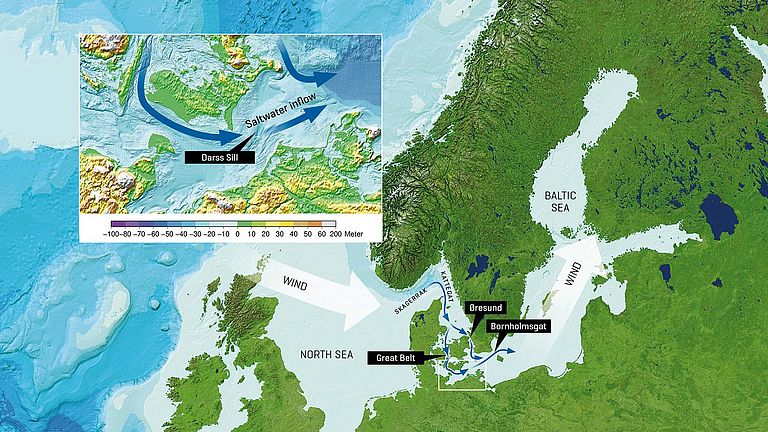
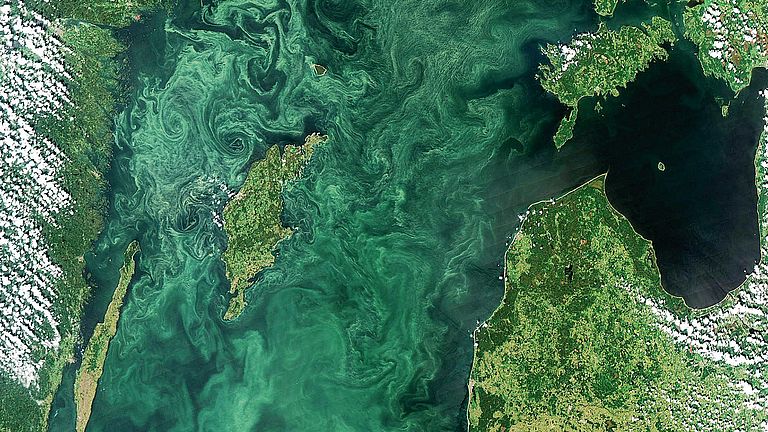
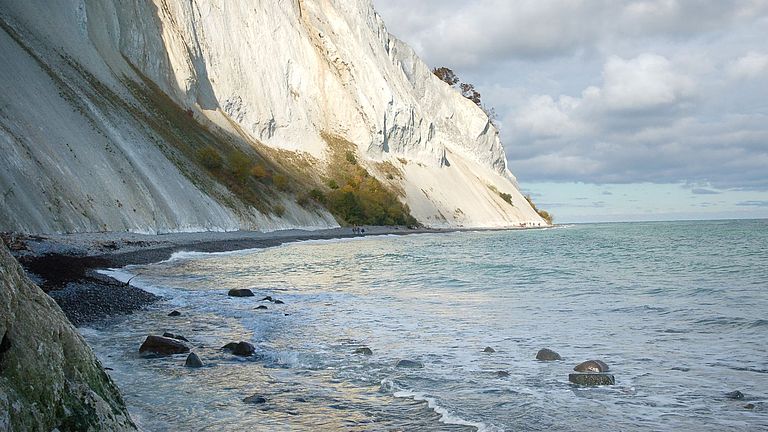
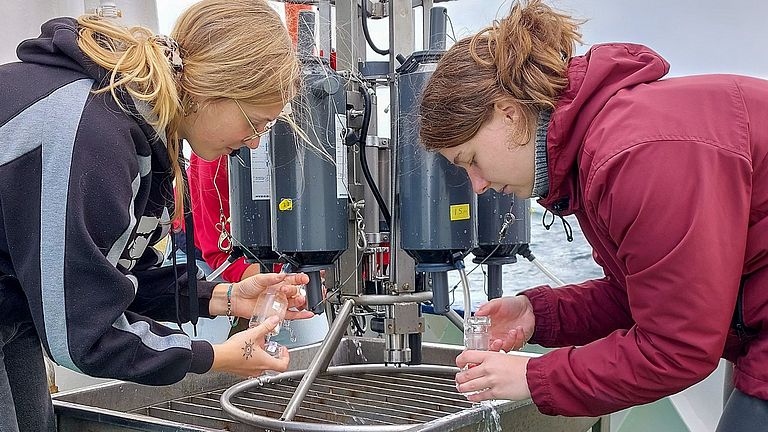
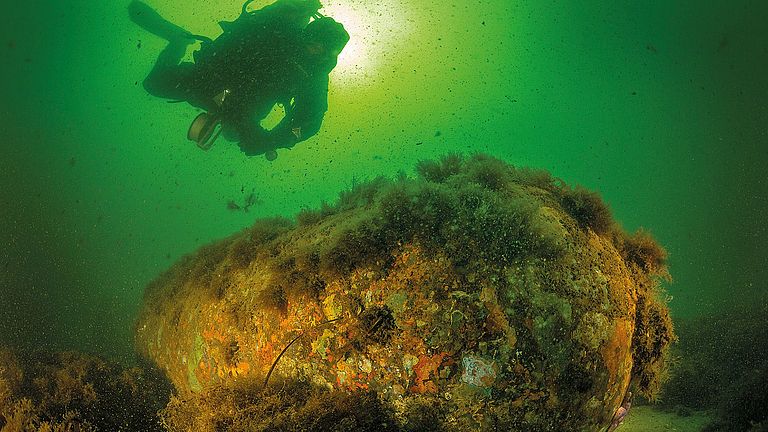
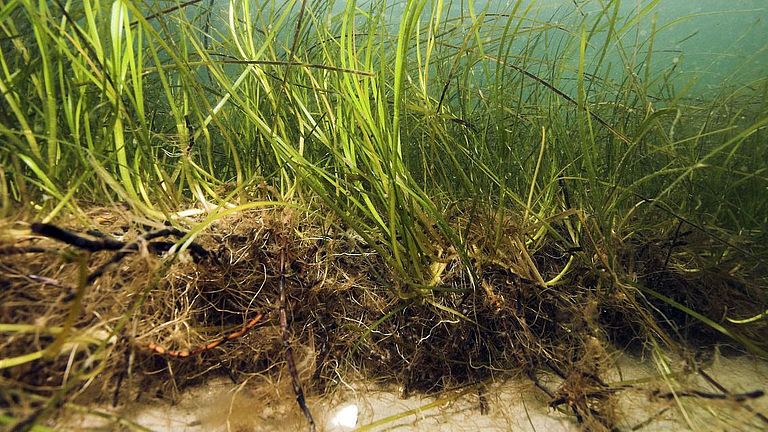
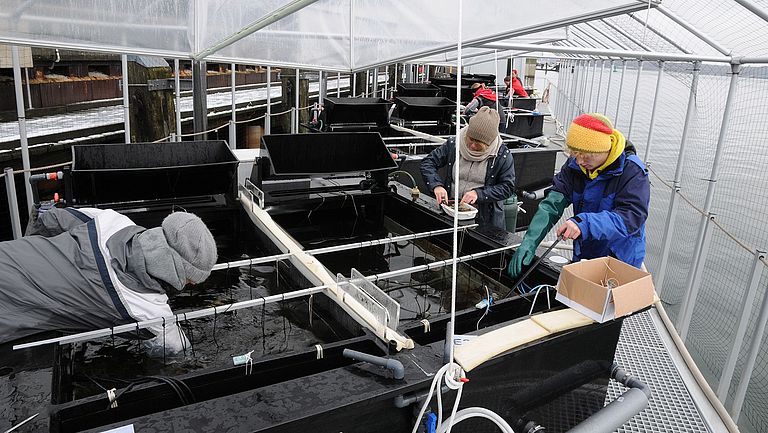
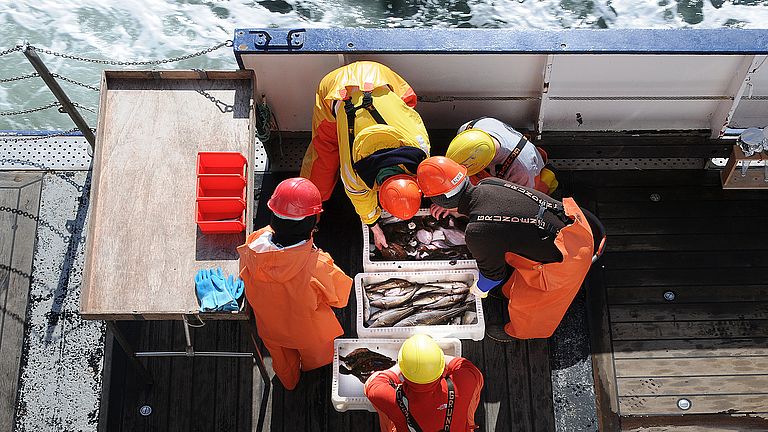
![[Translate to English:] A dead fish lies at the beach](/fileadmin/_processed_/f/0/csm_AdobeStock_26398862_27d367dd98.jpeg)



![[Translate to English:] An employee on a research vessel wearing a white safety helmet carefully guides a glass container filled with water, which is hanging from a belt, back on board the ship.](/fileadmin/_processed_/d/1/csm_2025-03-07_LITTORINA_OAEPIIP_c_MichaelSswat-2_fce588907b.jpg)
